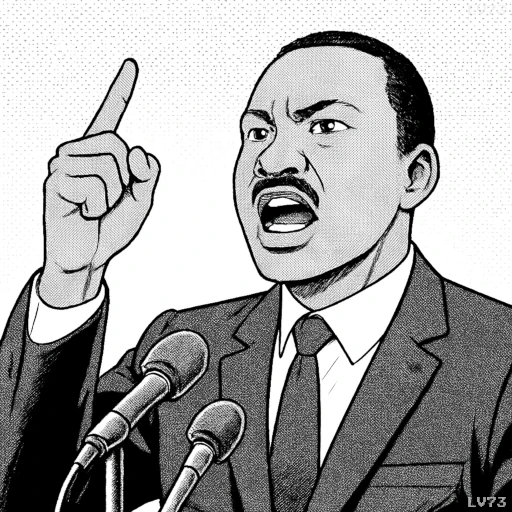“I want to be the white man’s brother, not his brother-in-law.”

- January 15, 1929 – April 4, 1968
- African American
- Pastor and civil rights leader
table of contents
Quote
“I want to be the white man’s brother, not his brother-in-law.”
Explanation
In this quote, King powerfully expresses his desire for genuine unity and equality between Black and white Americans. By saying he wishes to be a “brother” rather than a “brother-in-law,” King underscores that true racial harmony requires deep, familial bonds—relationships of trust, understanding, and love—rather than superficial or formal connections. He longed for a society where people of all races would feel truly connected and valued as family rather than distant, unrelated associates.
During the Civil Rights Movement, racial segregation and systemic inequality created a society where Black and white Americans often coexisted uneasily, with limited mutual understanding or respect. King saw this as a barrier to real progress, advocating instead for intimate, heartfelt relationships that could overcome racial divides. His vision of “brotherhood” called for empathy, openness, and a willingness to confront prejudice, inviting people to engage not as strangers, but as family.
In today’s context, King’s words remind us that surface-level diversity and inclusion are not enough to address the deep-rooted biases and inequalities in society. To build a truly inclusive world, people must strive to understand and care for one another as equals. This might mean creating safe spaces for open dialogue, addressing personal and systemic biases, and promoting social structures that encourage true unity and respect across differences. King’s vision calls for a world where people stand as brothers and sisters, bound by shared humanity, rather than remaining at a polite but distant remove.
Would you like to share your impressions or related stories about this quote in the comments section?




